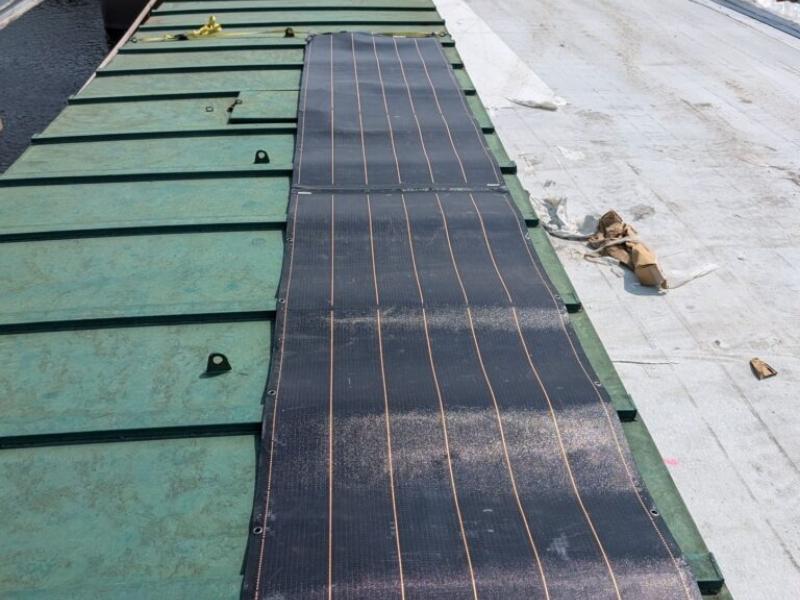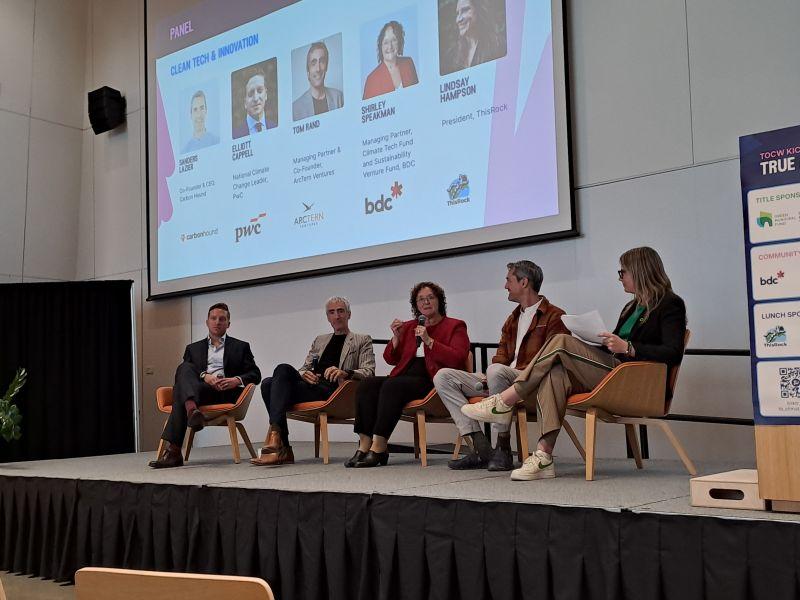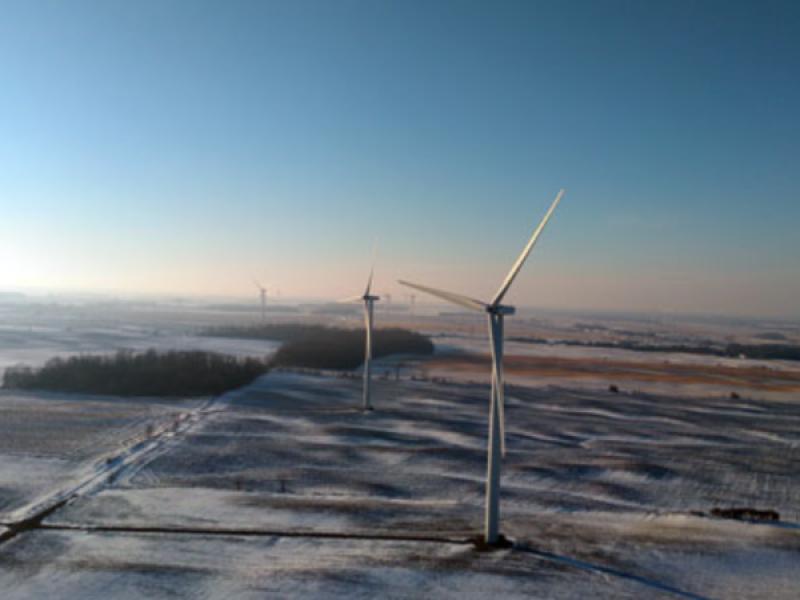
Burnaby-based BlueForce Energy is offering conversion kits for gas-powered vehicles it argues is a budget-friendly path for commercial fleets to transition into battery-powered electric vehicles (EVs).
At its facility in Burnaby or by partner businesses it supplies with customizable electrification kits and training, the fuel tank and internal combustion engine are stripped out and replaced with batteries and other comparable EV parts. At fleet-scale, the transformation comes at a portion of the cost of purchasing new electric trucks.
The company sees a big opportunity on the fleet side, because commercial players in heavy- and medium-duty transportation are struggling to transition into electric fleets because of the high upfront costs.
“We realized that it can be done at a lower cost while keeping vehicles on the road, reducing vehicle turnover globally while still reducing greenhouse gases nationally and globally,” Cian Carroll, organization and productivity project manager at BlueForce, said in an interview with Sustainable Biz Canada.
A renewable energy company founded in 2020, the company’s services also cover energy storage and infrastructure. Its founder was motivated to form BlueForce with vehicle electrification as its “crown jewel” as Carroll described, after his disappointment when bus maker TransLink launched hybrid-diesel buses for a retrofit project, rather than all-electric models as he expected.
‘Plug and play’ EV conversion
Outside of dramatic changes impacting the fuel tank, engine, the power steering pumps and HVAC, which are replaced with EV-compatible parts, the chassis and wiring of the vehicle remains untouched. After a few minor changes to the interior, the two- to four-week process is complete.
“So it’s as close to plug and play as you get at the moment,” Carroll said.
BlueForce can convert the ubiquitous Ford F-Series trucks, from the F-150 to the F-750. The cost of a conversion for commercial fleets goes up to two-thirds less than the cost of buying new electric trucks, Carroll said, resulting in “massive savings”.
Its service for an F-150 that makes it on par with a mid- to high-range F-150 Lightning comes with a price tag of $46,500, and from $65,000 to $70,000 for bigger trucks such as the F-750. Compare that to the MSRP for a 2025 Ford F-150 Lightning model that ranges from $59,995 to $110,495.
Those savings can be used to fund the charging and energy storage infrastructure, Carroll suggested.
“By repurposing these fleet vehicles, it’s probably one of the highest forms of recycling within the automobile industry, instead of them going to landfill or sitting in lots for years and years and going to waste,” he said.
Keeping classic cars relevant with electrification
BlueForce has also serviced emergency services vehicles, ground fleet vehicles for airports and private Hummers. For the Vancouver International Airport, it has electrified an F-150. The company is working with a First Nations band in Alberta and a local emergency services provider in B.C, and plans to tinker with 15- to 20-seater buses for transit clients.
Interest in BlueForce’s EV conversion service has grown over the last year, Carroll said. “Anything really that has a fleet of vehicles that’s in the light-, medium- or heavy-duty sector, people are interested in it”, he added, such as delivery clients.
If it has a combustion engine and runs on fuel, the company can design a solution, he said. Living up to that ethos is BlueForce’s plan to service classic cars older than 25 years.
In mid-April, BlueForce announced a collaboration with Peterborough, Ont.-based Arc Motor Company, which specializes in electrification of classic cars, to provide kits for vintage vehicles. The kits, which come with all the necessary parts for a changeover, costs $35,000.
With classic cars being handed down to younger generations who may lack the gearhead enthusiasm of previous owners, or are uncertain about maintenance in an increasingly electrified future, Carroll said BlueForce and Arc Motor are ensuring classic sports cars can stay on the road for a long time.
The company does not theoretically have a hard limit on the age of the vehicle it can convert, but it generally does not expect to alter a vehicle on the fleet side if the chassis is older than 25 years or if it does not meet safety standards.
Plans for a green energy industrial site
Carroll said BlueForce plans to have a network of installers and partners across Canada and around the world to do the installation work on its behalf. The aim is to focus on business-to-business and supply its conversion kits, rather than handle the conversions itself.
In the long-term, BlueForce is looking to develop a green energy industrial site powered entirely by renewable energy in B.C., attracting startups to large multinational companies. It then hopes to export this business model globally.










